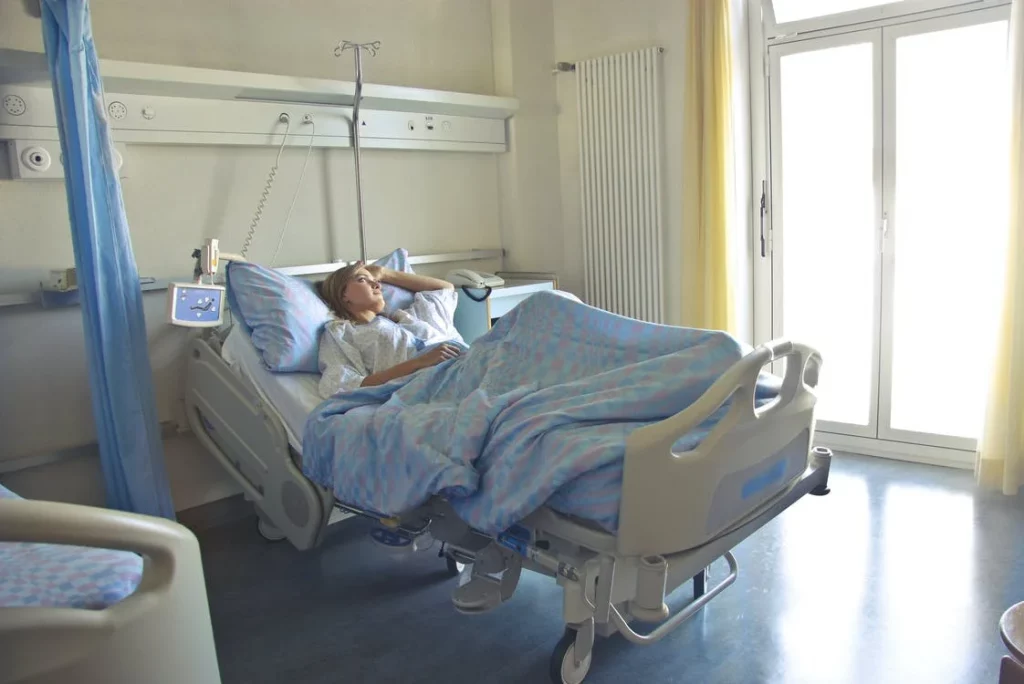Depression has become a household disease of families globally in recent years. Nearly 3.8% of the world’s population is likely to have symptoms of this infamous mental health disorder. Around 280 million people have reported suffering from the disease, where 5% are among adults. It is even familiar among older people, with an overall 5.7% affected.
While mood fluctuations and frequent emotional responses are common in mild to moderate depression, severe depression can induce self-harm or suicidal thoughts. Depending on the severity of one’s depression levels, healthcare professionals suggest tms therapy to individuals.
What is TMS Therapy?
A non-invasive and non-addictive treatment procedure for depression, TMS (Transcranial Magnetic Stimulation) uses magnetic fields to stimulate the brain’s neurotransmitters. It is also known as rTMS, as repetitive magnetic pulses are sent to the brain to relieve depression symptoms. This treatment has proved to be effective even in cases of severe depression.
How does it work?
During an rTMS session, the machine is placed near the patient’s forehead. The machine has an electromagnetic coil inside it that sends magnetic pulses constantly to those nerve cells that control mood. It boosts activity in those brain regions where depressive activities are less in number. As a result, the mood eases, and the person feels better eventually.
5 Facts about TMS Therapy for Depression
The Therapy works better than Antidepressants
When it comes to Major Depressive Disorder (commonly called ‘depression’), antidepressants are often regarded as the most chosen treatment option. However, it was found that the efficacy rate of these medications was not always up to the mark. To elaborate, patients consuming antidepressants are not overcoming the disease.
It is because most depression cases fall under treatment-resistant depression. Symptoms are usually recurring as they come back within weeks after the antidepressant courses end. Here is where TMS therapy takes the lead ahead.
The role of Transcranial Magnetic Stimulation (TMS) is specifically designed to address such stubborn depression symptoms. Nearly 50-60% of people who underwent the therapy started seeing better results within weeks of the first session. A lot of them even had complete recovery as symptoms completely disappeared. Therefore, it is true that TMS works better than antidepressants in most severe depression cases.
Insurance Cover is available for the Therapy
TMS therapy is a non-drug, non-invasive, non-addictive, and FDA-approved treatment option for depression. Those interested in undertaking the therapy can apply for insurance to cut some of the treatment costs. Fortunately, most insurance companies in the US states have provisions for that.
TMS does not require any Medication
The therapy is a safe and well-tolerated one by most individuals suffering from poor mental health issues. Although some research says that the therapy works even better when undertaken along with medications, one can still choose not to. So, without any medication, TMS is a treatment option with negligible side effects. On top of that, one does not need to be sedated using anesthesia or given pain relievers. Therefore, the therapy does not leave any unwanted problems for patients.
Free from significant Side Effects
One of the most crucial contributing factors to why many people today choose TMS therapy is because the treatment is so well-tolerated. Unlike antidepressants, this non-invasive therapy does not invite any significant side effects like –
- Nausea
- Vomiting tendencies
- Diarrhea
- Constipation
- Lethargy and dizziness
- Problems in sexual health
- Little to no appetite
- Insomnia/Drowsiness
These side effects are the reasons patients suffering from depression look for other treatments like TMS. The most common side effects include discomfort on the scalp, headache, and a tingling sensation.
TMS can make way for Complete Recovery
This is another interesting fact about TMS. Not many people are aware of the potential of the therapy or its long-lasting effects. Research shows that around 70% of people who have undergone the procedure saw complete remission of their depressive symptoms for 12-18 months.
Therefore, ideally, if one can stay away from their depression triggers, they can be free from the hands of depression. Besides, most people who completed TMS therapy have reported no longer needing their regular medications.
However, people whose symptoms have not disappeared completely have experienced a significant decrease. They have no longer reported having suicidal or self-harm thoughts, usually related to severe or acute depression. Therefore, one can conclude that the therapy does take an individual to complete recovery.
Wrapping Up
If you are looking for complete or long-lasting relief from depression, tms therapy can be a good option. Unlike other therapies, this is not just applicable to mild depression cases. This therapy can provide to patients suffering from acute or severe depression. The best thing is that it is a non-addictive treatment. If you are suffering from depression, consider getting this therapy.

